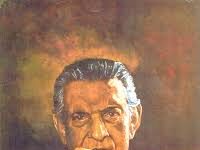Hi Jeyamohan,
Sir I have been following your blog and watching your unified wisdom videos for some time now. I am highly impressed with the way you approach Hinduism. I have a doubt, sir, about how to understand mythologies in Hinduism. By mythologies, I mean purana and ithihasa.
There are always leftists who try to portray that these mythologies were distortions or evil Brahmins spinning mythological lies. Are there any books on how to understand mythologies? I remember in one of your speeches you said sthala puranas are a different kind of history.
I would be delighted if you could explain how to understand the Puranas and Ithihasa of Hinduism. You’re doing a great service, sir, educating ill-informed people like us who don’t even know about our religion.
Vinod
Dear Vinod,
First, we must clarify that myths are a universal language of our ancestors, not just in India or Hinduism. The mythology of humanity is very large, and the common threads in it are a wonderful thing.
Brahmins did not create or propagate myths in Hinduism; almost all castes and communities did. There’s no community or religion without mythology.
Myths are the way ancient people expressed their history, philosophy, and even sociological thoughts. To understand that, we have to listen to them with needed attention, suspending the foolish belief that we are ‘enlightened’ and ‘intellectually superior’ beings. We must know that we are just the continuation of them.
Myths, which have persisted in various forms since the age of cavemen, express the mystic visions of ancient people. We can connect ourselves—our imagination and subconscious— with our ancestors only through myths.
The rationalists here are practically illiterates; we can’t discuss with them. I’ve discovered that today’s social media environment turns everything into a pointless debate. That is why we are conducting classes on philosophy and the arts. These classes may help you understand things in detail. I am not interested in discussing these matters on popular media.
Jeyamohan











